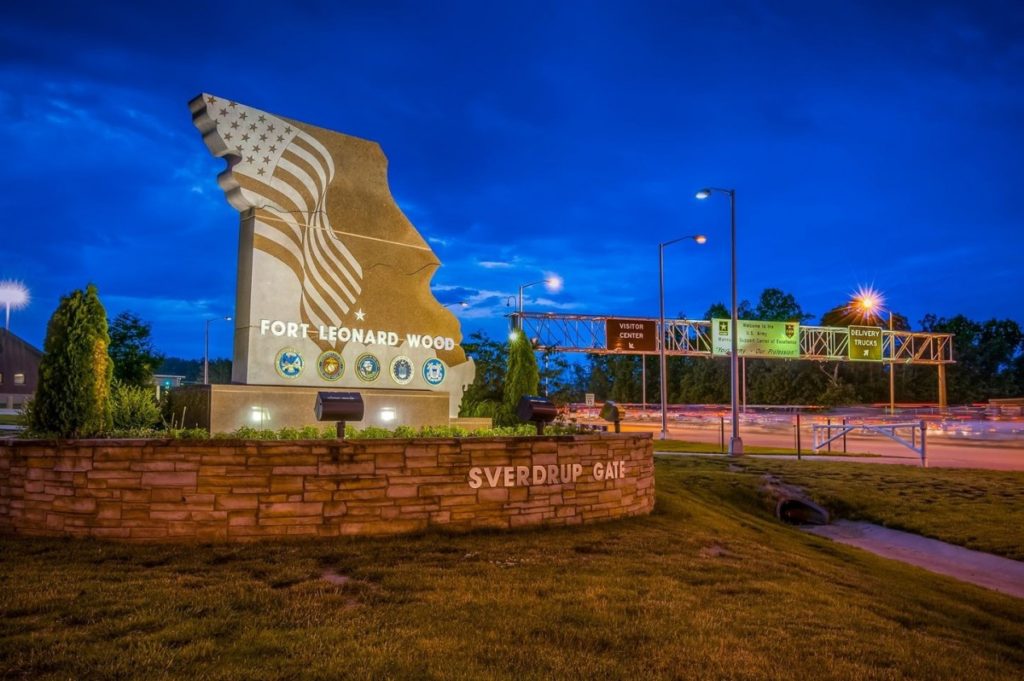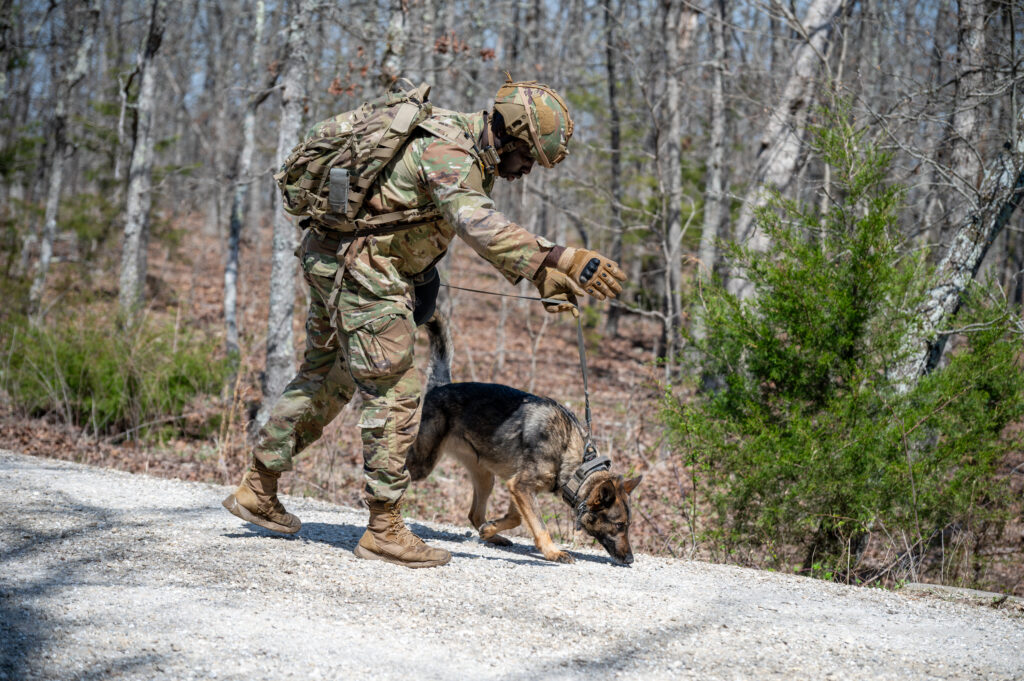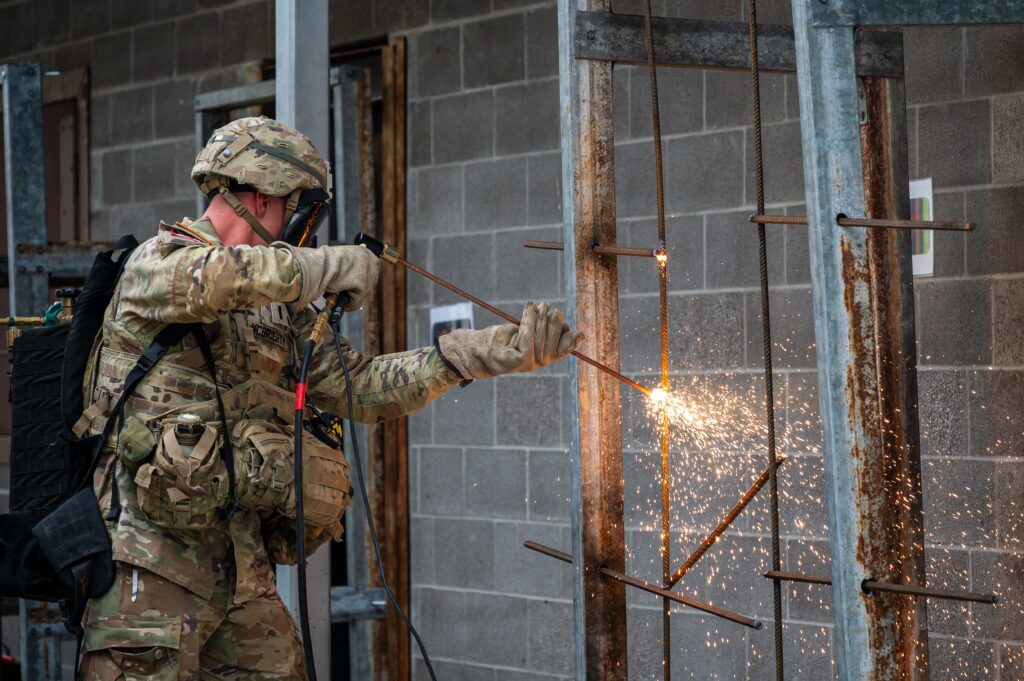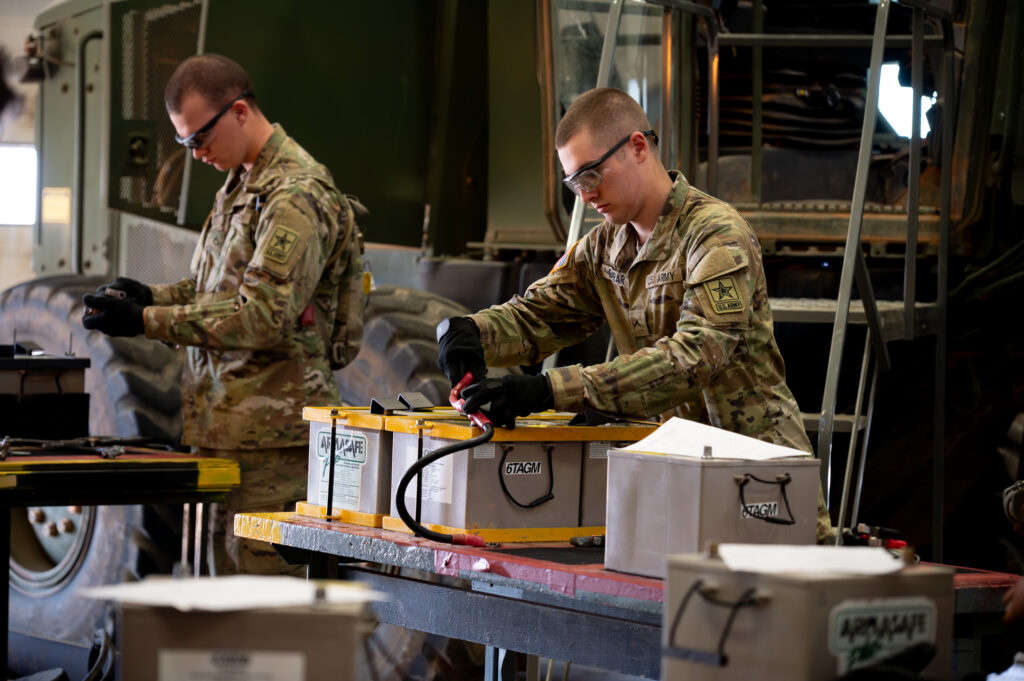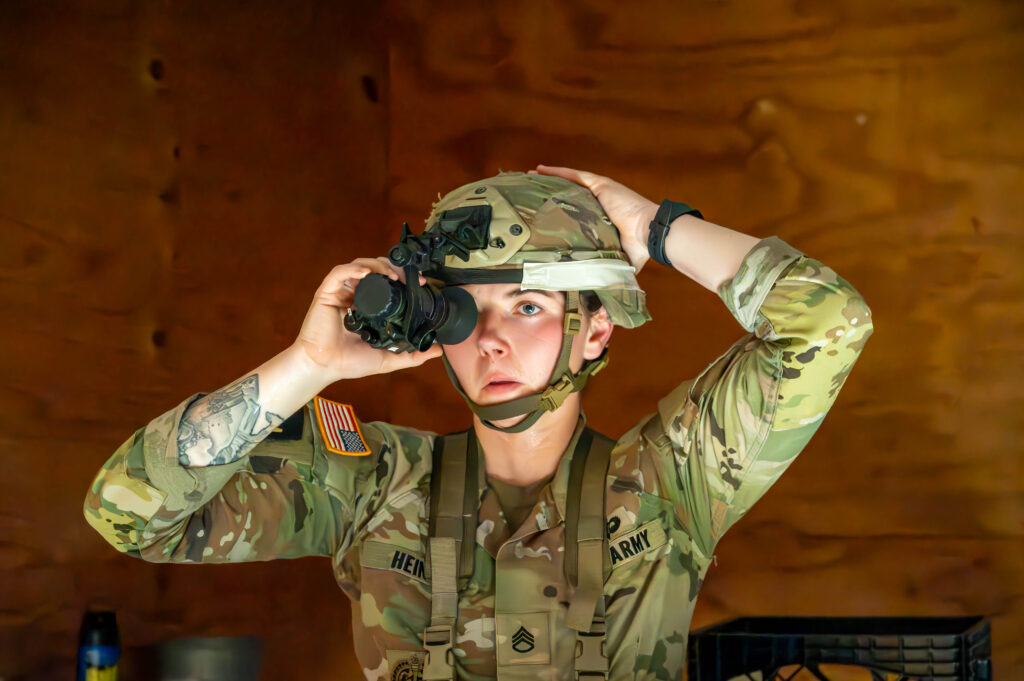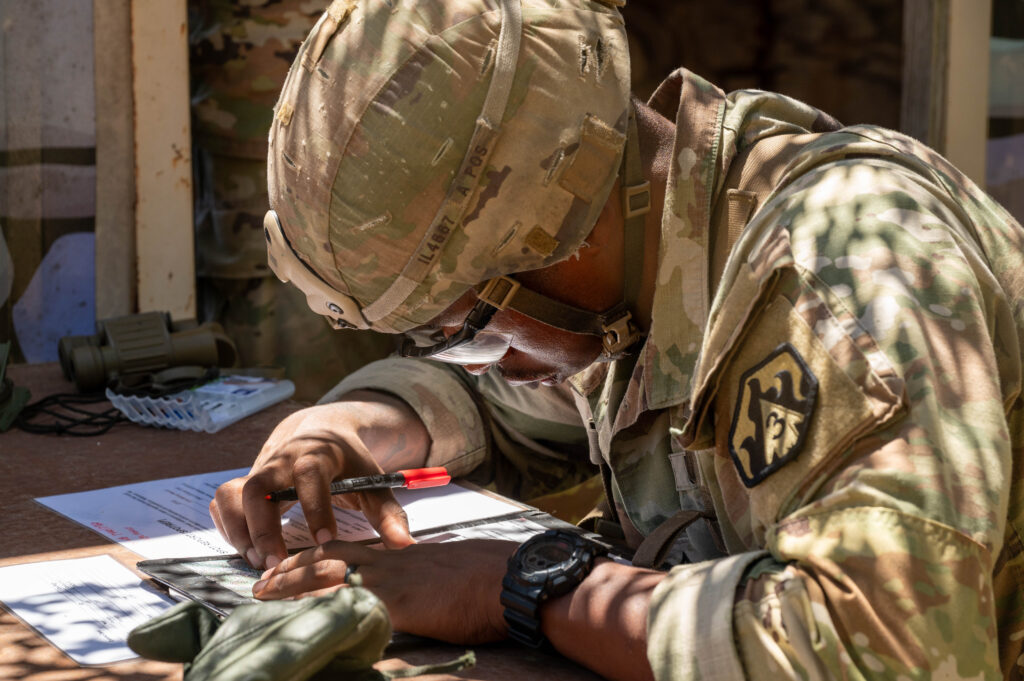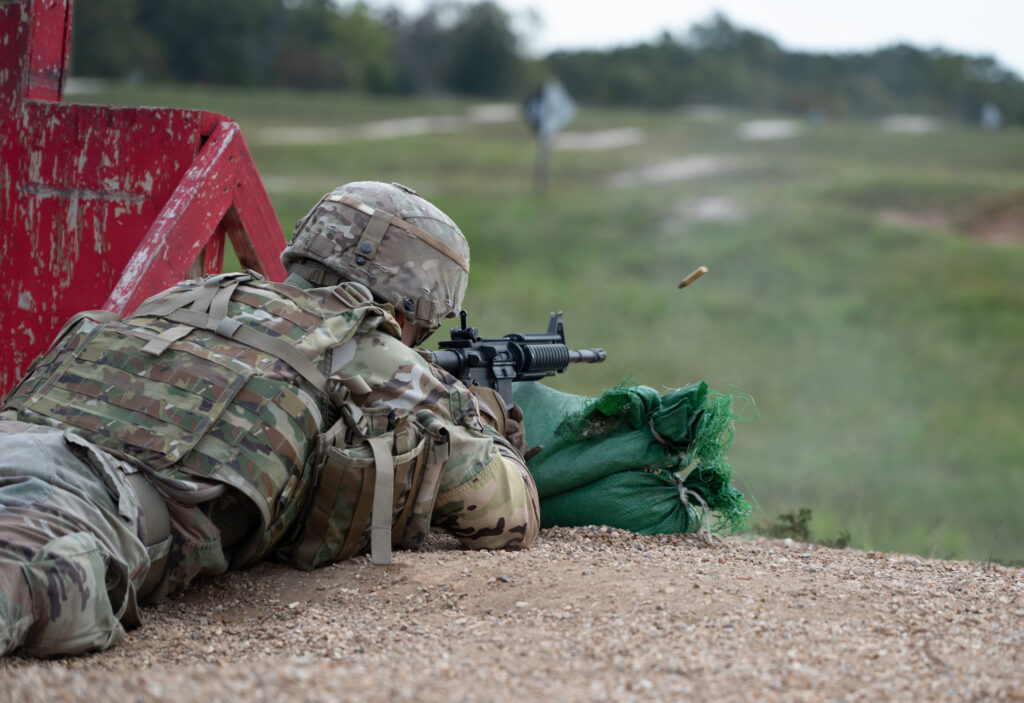Carmen Daugherty
FORT LEONARD WOOD, Mo. (Feb. 9, 2021) — When Sgt. Robert Keys, a Calvary Scout instructor from the 1st, 75th Cavalry Regiment, 101st Airborne-Air Assault, decided to change his military occupational specialty, he never thought his goal of becoming a prime power production specialist would be so difficult.
The Contingency Basing Integration Training and Evaluation Center (CBITEC), in Fort Leonard Wood, Missouri, provides U.S. Army Prime Power School students with testing facilities throughout their year-long training program. While the students encounter a variety of course challenges, the hands-on training provided and facilitated by the CBITEC is considered the most demanding. CBITEC is a U.S. Army Engineer Research and Development Center (ERDC), Construction Engineering Research Laboratory (CERL) facility that supports the operational energy continuum and safely trains the warfighter to tackle the nation’s power challenges.
“This entire year has been an academic challenge to me and many of my classmates,” Keys said. “Luckily, our prime power class has a diverse group of talented Soldiers from many different backgrounds, and when Soldiers see fellow classmates struggling, we step up and support each other. We studied together, put in the extra hours and did what we could to make sure we all graduated together.”
According to Staff Sgt. Russell Gaskins, the Prime Power School primary instructor and course writer, the students are given situational injects, or real-world scenarios, and taught to evaluate a variety of power outages. Owing to CBITEC’s facilities and capabilities, the instructors can safely challenge the students.
“CBITEC provides us with the flexibility to inject many different electrical outage scenarios, from assessing repairs, troubleshooting electrical problems, fixing broken high voltage lines and splicing power cables and many other prime power problems,” Gaskins said. “Another important factor we must monitor and identify is safety. When you deal with electricity, safety is our main concern, and the CBITEC facility provides us with a place to test the student’s ability in a controlled environment. CBITEC is an invaluable resource for the Prime Power School and our students’ training requirements.”
Due to the in-depth instruction and large volume of both book and hands-on training material covered, students are required and expected to devote at least 30 hours per week outside of class to reading, studying and homework — and much of this is completed on the weekends.
The U.S. Army Prime Power School graduates will work in many challenging and rewarding assignments worldwide. In wartime, Army personnel are responsible for supporting a wide range of Prime Power program missions. In peacetime, skills are maintained through training exercises, emergency deployments for disaster relief efforts and special purpose deployments for electrical power in operations other than war. They provide technical expertise for missions in support of the Directorate of Public Works throughout the United States and overseas.
“The benefit of having the Prime Power School train at CBITEC is the capability it provides ERDC-CERL to research, develop and implement future operational energy technologies that better support multi-domain operations along the operational energy continuum from spot-generation to medium voltage power plants,” said Marcus Ferguson, the ERDC-CERL CBITEC program manager. “Hosting the Prime Power School’s capstone exercise and other hands-on training allows our operational energy researchers to directly interact with the Army’s experts and provide energy capabilities to the warfighters.”
Tom Decker, ERDC-CERL, Operational Energy program manager and Prime Power School graduate, class 96-02, said, “ERDC-CERL supports the Department of Defense (DOD), North Atlantic Treaty Organization and United Nations operational energy programs. CBITEC works directly with the Prime Power School, which produces the U.S. Army prime power specialist, and U.S. Navy mobile utilities support equipment technicians. They are the highest trained power producers and power managers in the DOD — and they are highly respected by our international partners. The capabilities CBITEC provides to the warfighter adds to ERDC-CERL’s reputation as an operational energy research leader.”
There is, however, an attrition rate with such a difficult course. According to 1st Sgt. Mark Averry, the Prime Power School First Sergeant, the 2020 Prime Power School started with 20 students, of which 13 earned graduation certificates. At a ceremony in December 2020, Averry elaborated on the responsibility the students have as graduates.
“Today the U.S. Army graduates 13 prime power specialists who are ready to go to their next duty assignment and test their knowledge, skills and abilities,” Averry said. “They have been given a tremendous responsibility and their technical expertise will be challenged to successfully solve some of the toughest prime power problems for our nation and the world. They will be responsible for responding to natural disasters, deployed world-wide to support the warfighter missions and much, much more. These 13 prime power students’ impact and mission for the Army is profound, and these Prime Power School graduates are ready to face the nation’s toughest challenges.”
Averry also added that the cadre is grateful for the CBITEC facility and the opportunity to bring multiple capabilities together. “Any time you have a facility like the CBITEC where you can safely combine so many electrical training requirements and assets and get some real-world, hands-on training — it’s the best.”

-30-
About Fort Leonard Wood
Fort Leonard Wood is a thriving and prosperous installation that has evolved from a small basic training post more than 75 years ago to a premier Army Center of Excellence that trains more than 80,000 military and civilians each year.
Fort Leonard Wood is home to the U.S Army Maneuver Support Center of Excellence and three U.S. Army schools: the U.S. Army Engineer School; U.S. Army Chemical, Biological, Radiological and Nuclear School; and the U.S. Army Military Police School. In addition to training engineer, CBRN and military police specialties for the Army, Fort Leonard Wood also provides gender-integrated in-processing and Basic Combat Training for new Soldiers.
Fort Leonard Wood also hosts and trains with the largest Marine Corps Detachment and Air Force Squadron on any Army installation as well as a large Navy construction detachment.
More information about Fort Leonard Wood is at: https://home.army.mil/wood/index.php/about/mission
